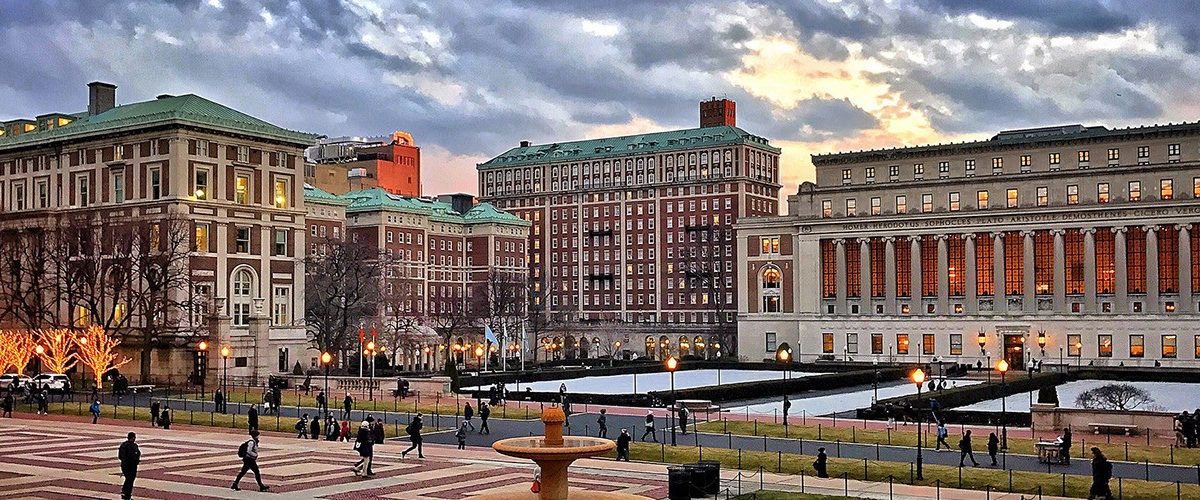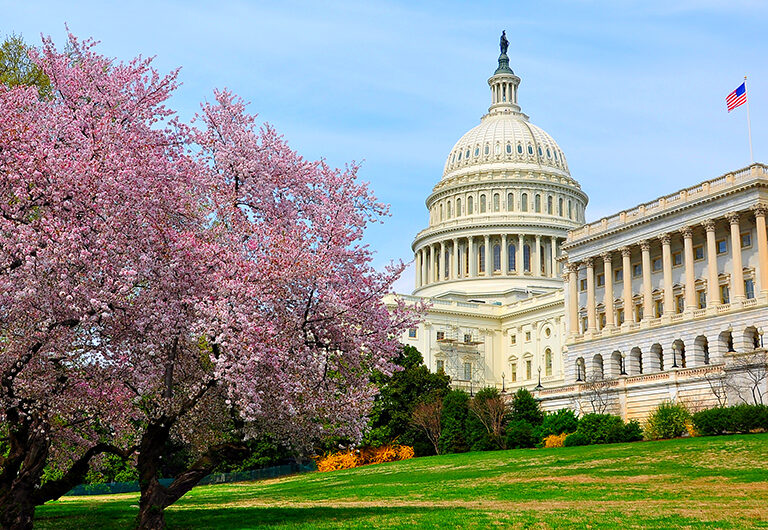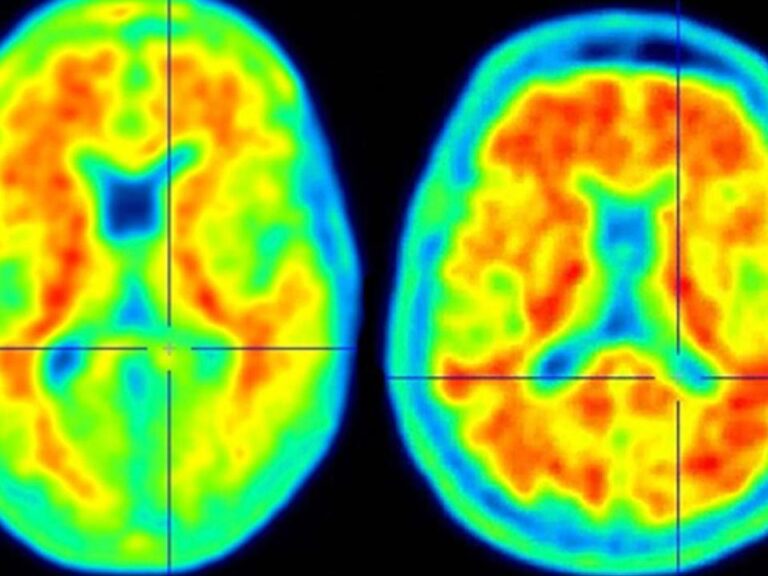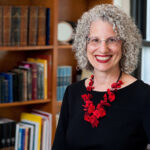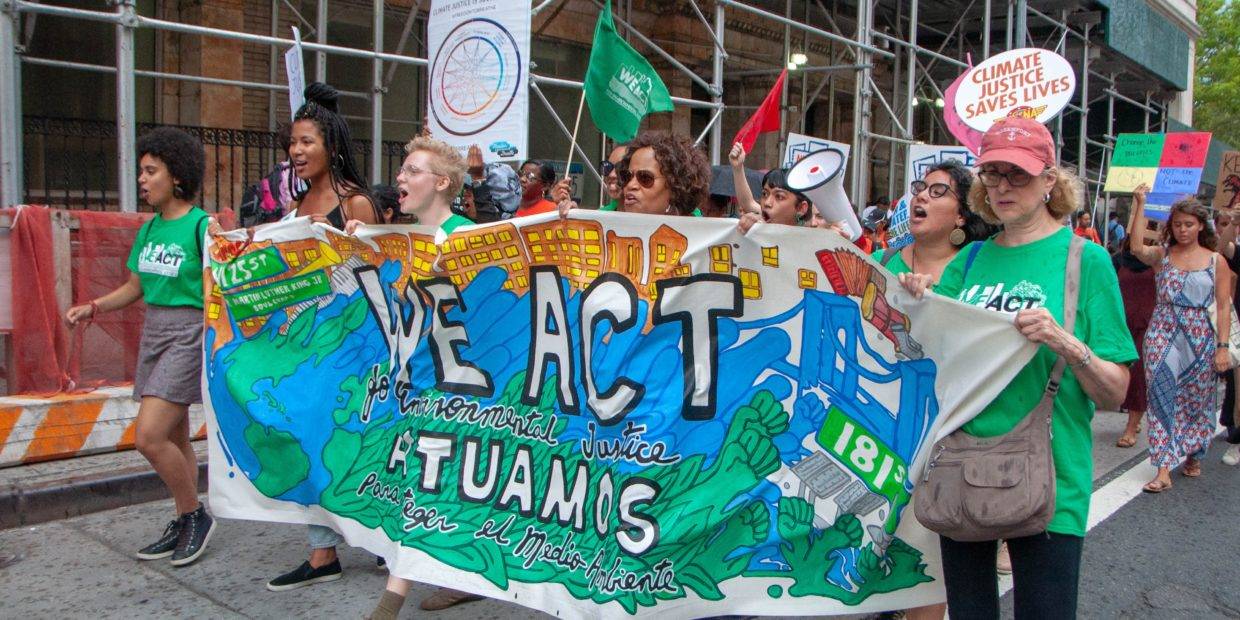Statement of Ms. Claire Shipman, Co-Chair of the Board of Trustees, Columbia University, before the Committee on Education and the Workforce, U.S. House of Representatives
April 17, 2024
Chairwoman Foxx, Ranking Member Scott, and Members of the Committee, thank you for the opportunity to be here today and discuss Columbia University’s efforts to combat antisemitism.
Antisemitism is dangerous and reprehensible. It has no place at Columbia, or in our society. I am grateful, as a citizen and a co-chair of our Board, for the spotlight that you are putting on this ancient hatred, and the critical role you play holding our most important institutions to account. As a reporter, I always have a bias toward transparency and accountability.
It is difficult, and heartbreaking, to hear, as we do regularly, that members of our community feel unsafe. I am a parent of college-age children, I know dozens of students at Columbia, and I feel this current climate on our campus viscerally. It’s unacceptable. I can tell you plainly that I am not satisfied with where Columbia is at this moment. As co-chair of the Board, I bear responsibility for that. This role is one of the great privileges of my life, and I take the weight of its responsibility seriously. I am dedicated to addressing these concerns.
The days immediately following October 7 are the most painful I have experienced on our campus. I knew, as word of the horrific Hamas terrorist attack started to spread, that the tragedy would have a devastating impact, especially on our Jewish students. Two days later, President Shafik and I joined hundreds of members of our community for a somber, candlelight vigil on the steps of Low Library. The grief was intense, but it was a moment of comfort. It would be fleeting.
The last six months on our campus have served as an extreme pressure test. Our systems were not equipped to manage the unfolding situation. But with each challenge, we have moved to adapt decisively. Physical safety was, and is, paramount, and we were seeing protests unprecedented in type and scale, a level of threats and harassment, especially directed at our Jewish students that was unacceptable. We shut our gates and backed the critical decision to invite the New York City Police department onto our campus during demonstrations for the first time since 1968. We’ve also brought on other law enforcement experts, rewritten our rules, and beefed up our enforcement process, suspending two student groups for non-compliance, more than a dozen individual students, and also disciplining faculty members. We’ve created an independent antisemitism task force, and launched training across the University on antisemitism. I hope to discuss more of our efforts later, but let me say something equally important: We are far from done. I am outraged by the vile sentiments I continue to hear, by those who ignore our rules, and we are holding them accountable. This problem, though, goes deeper than discipline. It’s about returning to our core values as an institution.
Late last fall, I moderated a powerful event with two brilliant women—the Israeli dean of our foreign policy school, Keren Yarhi Milo, and her friend, Amani Jamal, the Palestinian dean of Princeton’s foreign policy school. They didn’t agree on everything, but the women spoke with empathy, wisdom, common sense, and respect. That should be our steady state.
40 years ago—I arrived in New York from Columbus, Ohio, a full financial aid student with little sense about the school, the city, or the world. I was challenged by the breadth of ideas and outlooks—I drank up the chance to rub shoulders with cutting edge DNA researchers, and frontline cold war strategists who upended my political point of view. Columbia changed my life. That is what universities are meant to do—teach students how to think, not what to think. To challenge and broaden, not to intimidate and terrorize. We can be a campus that both battles antisemitism and all bigotry, and a place that allows for vigorous debate. A place that can weigh the most difficult questions in the world—in a civilized, respectful fashion. We are determined to create, again, a flourishing ecosystem. But, a healthy Columbia must start with respect for each other, and our rules. Let me be clear: Antisemites, bigots of any sort, those without common sense and common decency are not welcome at the Columbia we are rebuilding.
We are committed to being honest about where we are, and doing the hard work, going forward, of making Columbia better. I look forward today to getting your input.
More specifically, the Hamas terrorist attack, and subsequent war in Gaza, and the effects on our community, have revealed shortcomings in our system that we must, as leadership, come together and resolve. As they existed six months ago, our systems were not equipped for crisis management. Our process had been built, broadly, to respond to issues like academic dishonesty, and the use of alcohol or illegal substances, and it struggled to handle new realities on campus after October 7. But we have moved to adapt quickly, with our most fundamental goal, at all times, being the protection of our community.
We knew that securing physical control over the campus, within days, was necessary for safety. We typically have an open campus, but that approach, especially in New York, posed substantial risk. As a Board, we considered decisions to hire outside security firms, to close the gates of our campus to those unaffiliated with the school, and to invite the New York City Police Department onto our campus, and we decided to implement all three options. We knew we might face internal criticism, Columbia had not had the NYPD on campus for demonstrations since 1968, but it was important to keep our community safe. We now know that NYPD presence is making a difference, we are grateful for their excellence and their help, and we are committed to working with the police indefinitely.
We quickly began work to review and revise University policies—especially around events and discipline—to ensure that the policies are sufficient to address the situation at hand. Especially in light of the protests we saw on campus that were unprecedented in type and scale, we recognize that the University needs better rules and enforcement. We have adopted measures to limit the time, place, and manner of protests. These measures are meant to help protect our community from fear and threats, and simultaneously protect speech freedoms. We are also working to enforce these rules. Following a series of rules violations and non-responsiveness by group leaders, the University’s event policies were used to suspend indefinitely two student groups on November 19. We are committed to continuing to consider revisions and additions to the rules as we see how they operate in practice
In addition to focusing on the physical safety of students and faculty on campus, we took concrete actions to confront antisemitism and support the Jewish members of our community. To help connect with Jewish students and better understand the needed resources, Columbia’s trustees met with students or attended campus events, including at Hillel. I met with Israeli Defense Forces veterans, for example, in our General Studies program, incredible young women from Israel who were struggling to comprehend the attacks at home. These students shared their fear of being targets walking across campus. That was unacceptable to me. In response to hearing devastating information like that, we worked to add resources to hotline and escort services to ensure students who felt threatened could get the protection they needed.
The University has also taken extensive actions to confront antisemitism by improving reporting and training processes. We have enhanced the process by which members of our community can institute complaints regarding discrimination and harassment, making reporting easier. We have added additional resources—through both internal staff and hiring external support—to address these complaints. We have enhanced our training process for everyone working with students and student groups and brought in outside training on Title VI and reporting obligations. We’ve also brought in significant outside investigative help to assist in efficient processing of harassment and discrimination complaints, and to allow a more rapid administration of justice.
President Shafik, less than a month after October 7, launched a Task Force on Antisemitism, one made up of three of the University’s most respected Jewish community members, to identify the challenges ahead of us and provide recommendations for the University’s response. The Task Force has already given us constructive feedback and suggestions. On the Board of Trustees, we also created a task force that tracks ongoing events and feeds recommendations to the administration. In addition, Columbia is working to foster productive conversations through programs like Dialogue Across Difference and connecting our community through listening forums. This is something our students, over and over, have said they need.
As we continue improving, we have a number of longer-term efforts underway. Our ongoing rules review will provide comprehensive guidelines for demonstrations and protests that will lead to even greater accountability and a safer campus. That will provide one method of longer-term education. But rules and consequences will only get us so far. In the long term, it is our duty to educate deeply. To help our students to learn to listen with respect. To that end, we have invested extensively in antisemitism training for faculty and staff, which is already underway. We are also adding antisemitism education to our student orientation programs. We will continue investing in scholarship and academic programming that elevates campus debates on difficult issues. And we will focus on educating our community about the dangers and realities of antisemitism.
We recognize that, despite our best efforts and intentions, Columbia did not always respond swiftly and forcefully enough, and we therefore fell short of addressing the enormous outpouring of grief and fear that our Jewish community was experiencing. Although we have not always gotten it right, and we still have much work to do, we are committed to making progress and overseeing improvements. We have also heard our Palestinian students, and other students from the region, who have felt unfairly doxxed, or targeted for their identity. I’ve met with and heard from a number of them. That is also unacceptable. It is our first imperative that all our students feel safe attending classes, sharing their perspectives on the conflict, and participating in campus life to the fullest. We are committed to hearing feedback from our community, this Committee, and our alumni and supporters around the world.
Right now, Columbia is facing a critical moment and a serious challenge. We have significant and important work to do to address antisemitism and to ensure that our Jewish community is safe and welcome and that all of our community can continue to thrive. Our first—and most important—duty is to our students, and at every step of our response, I will keep that in mind.
The remainder of my testimony has additional details on the University’s efforts to confront and combat antisemitism.
Board of Trustees of Columbia University
The Columbia Board of Trustees advises the President and other senior University officials. We hire and oversee the President, who is responsible for hiring officers and running the day-to-day operations of the University. We also act in an oversight capacity, overseeing the University’s operations, finances, and compliance with the law. We take great care in executing our role and guiding the implementation of the strategic direction of the University in close consultation with the University’s senior leadership. All Trustees, other than the President, are volunteers. We are not paid, and do not make a career out of being Trustees. Our work comes from our love for Columbia, and our desire to support and improve the University in every way we can.
Much of our work is not public facing. The Board does not publish press releases and does not have a social media presence. We have not released a statement about antisemitism, because we think it is important for all public statements to come from the administration, led by the President, so Columbia speaks with one unified voice.
During this crisis we have been in constant communication with President Shafik about strong, consistent, and meaningful responses to antisemitism on campus. We have made sure that a diversity of perspectives is heard and considered in the University’s approach. The Trustees have met with students or attended campus events, including at Hillel.
The primary concern of the Board was—and is—student safety. We were involved in Columbia’s decisions to ensure the physical security of our campus and to provide additional resources to students experiencing pain and trauma in the wake of October 7.
Columbia University’s Actions to Combat Antisemitism Since October 7, 2023
The Board is committed to building a university with an active discourse where all students, faculty, and staff can share their views on the issues important to them, but we refuse to tolerate threats, violence, and hatred. It is the Board’s responsibility, in conjunction with all University leadership, to build a community where everyone is safe and able to thrive. Our efforts will not be over until that goal is achieved in full.
Columbia has seen a rise in complaints of antisemitic incidents on campus since October 7. We are taking these complaints seriously and have implemented a number of initiatives to address this harassment and hatred and to ensure safety on our campus. Simultaneously, these initiatives are built to ensure that all members of our community have access to the resources and support that they need to handle these incidents.
a. Immediate Action Was Taken to Provide Physical Safety on Campus
Columbia’s disciplinary processes and support services were not prepared for the volume and the nature of violations that we saw after October 7. Traditionally, our campus has been open for public debate, including between students, faculty, and those not affiliated with Columbia. But the demonstrations and confrontations between student groups were unprecedented, and immediate action was needed to ensure the physical safety of our students.
Columbia began restricting access to campus to only Columbia ID holders during major events. Additionally, we increased the presence of public safety personnel across all of our campuses, hired outside security firms for additional support, and ensured that the NYPD were present or on standby for all major events. This is the first time in 50 years that Columbia has had a police presence on campus during demonstrations. We suspended two student groups, Students for Justice in Palestine and Jewish Voice for Peace, following a series of rules violations and group leaders’ non-responsiveness to our repeated entreaties to comply. Many of these decisions were not popular, and provoked strong reactions from students, faculty, and outside groups. But President Shafik, the Board, and other University leaders felt they were essential to ensure the safety of our students on campus.
b. Enhanced Reporting, Resources, & Student Policies
Combatting antisemitism starts with understanding the full scale of the issue. To increase the reporting of antisemitic and other hate incidents, Columbia launched the Enhanced Reporting Initiative. This initiative increased the online accessibility of the University’s reporting system, Maxient, to make it easier for community members to file reports. The initiative also created posters with QR codes directing members of our community to the system. Additionally, the initiative created a telephone helpline to answer any questions about reporting incidents and accessing support. Combined, these efforts will bring additional incidents to the University’s attention so that they can be addressed appropriately. Columbia has also created a Doxing Resource Group to assist students who have been subjected to doxing attacks. This group provides students with crucial support and has already assisted more than 90 students.
Columbia maintains rules that prohibit antisemitic harassment, discrimination, and violence and will punish those who violate them. Since December, Columbia has undertaken a review of all event policies and the Rules of Conduct to make sure that they are appropriately formulated to prevent acts of hate against Jewish community members. The University Senate is also reviewing University rules, and the Board looks forward to reviewing their findings and recommendations in the coming months. While this larger review was essential, it was also important to provide more immediate changes to protect our community.
Columbia also released updated Interim Demonstration Policies, which create designated demonstration areas where students are allowed to protest and share their views, so long as the protest does not disrupt the functioning of the University or otherwise violate the University’s code of conduct or the law. These designated locations are intended to be prominent and central, while still limiting interference with ongoing University activities and ensuring the safety of students. Limiting demonstrations to set areas will make it possible for students who do not wish to interact with protestors to avoid these events while still attending classes and participating in other aspects of life at Columbia. If students wish to hold a demonstration outside of one of these designated areas, they must seek University approval. All demonstrations require two working days’ advance registration to ensure that Columbia has time to make necessary safety preparations. Finally, students are not permitted to promote a demonstration on campus until after their registration is approved. The policy also lays out a clear procedure for adjudication of alleged violations and consequences for students and student groups who break the rules.
Columbia recognizes the importance of free speech, even on incredibly divisive topics, and will not deny a group the right to protest peacefully based on their viewpoint. However, there will be consequences for those who fail to abide by the demonstration policy. If the policy is violated, student groups will be reported to their respective student governing board, which will recommend sanctions to the Administration. Individual students who violate the policy will be reported to the Center for Student Success and Intervention. Repeated violations of the policy by an individual student can result in referral to the University Judicial Board, who can recommend that the student be placed on probation, suspended, or expelled.
Four months later, these policy changes are yielding important results. The new time and place restrictions on protests, and corresponding penalties for noncompliance, appear to be reducing the number of events that violate University rules. Students are asking for more events that involve dialogue on the larger issues and can have more conversations with each other. And in the cases where things do go wrong, we are seeing faster-paced discipline.
Our hope is that these changes will make it so that our Jewish community members feel safe, secure, and welcome at Columbia, while also permitting other students the ability to make their voices heard. We are optimistic about the power of this policy, which was endorsed by the Task Force on Antisemitism. We will continue evaluating these policies over the coming months, and as necessary, we will amend the policies to ensure the safety of the Columbia community.
c. Columbia University Task Force on Antisemitism
Shortly after the October 7 terrorist attacks, Columbia University launched a Task Force on Antisemitism led by three prominent Jewish faculty members on our campus to develop a forum for feedback and suggest improvements. The Task Force has been at the core of the University’s response to antisemitism and has met with representatives from all 17 schools at Columbia to learn more about what our Jewish community is encountering on campus.
The Task Force was entrusted with three critical efforts, which they have been relentlessly working on since. First, the Task Force was asked to assess the events and other causes contributing to the pain in Columbia’s Jewish community. Second, they were asked to review the relevant policies, rules, and practices that impact our campus. Finally, the Task Force was empowered to propose other methods to help the entire community understand the impact of antisemitism at Columbia. To better understand the experiences of the Columbia community, the Task Force hosted listening sessions. During these sessions, Task Force members heard from our community about the impact of antisemitism at Columbia to inform their later actions.
To advance these goals, the Task Force rapidly released their first report, which focused on Columbia’s rules for demonstrations. Their report endorsed Columbia’s new Interim Demonstration Policy aimed at promoting the ability of community members to engage in debate and conversations regarding differing opinions while still ensuring student safety and allowing students to participate fully in campus life. The report also called for stronger enforcement of our policies, a goal we are working towards. While the Task Force’s praise of the new Demonstration Policy is not a sign we are done, it is a heartening indication that we are moving in the right direction. The Task Force will be releasing additional reports, which the Board is eagerly awaiting. We will continue incorporating its findings into our ongoing efforts to make Columbia a welcoming environment for all.
d. Dialogue Across Difference (DxD)
Columbia also created the Dialogue Across Difference (DxD) Program, which has been holding programming, providing professional development opportunities for faculty hoping to facilitate difficult conversations in our community, and providing seed grants that will permit students, faculty, and staff to create their own programs focused on facilitating dialogue across difference.
DxD has already hosted four events focused on facilitating effective and respectful dialogues amongst those with differing opinions. The events have covered a diverse range of topics, including a discussion detailing the history of Middle East conflicts and the chances for peace in the region, a conversation about divisions in our democracy, and a discussion on artificial intelligence and its future impacts on future public dialogues and freedom of speech. These events were not merely wonderful learning experiences on a wide range of topics, they were also demonstrations of how those with differing opinions can have productive debates and discussions—even regarding high-stakes issues.
In addition to these community-wide events, the University is providing professional development and training opportunities for faculty through the DxD program. In January and February of this year, DxD trained Columbia faculty on “Having Difficult Conversations” and “Employing Empathetic Objectivity in the Classroom.” DxD also partnered with an organization outside the University to provide skills trainings to Columbia staff, aimed at responding to the Israeli-Palestinian conflict, de-escalating situations that become too heated, and facilitating conversations despite difference.
Finally, the DxD program provides funding to support faculty and students who want to create their own partnerships and programming to support positive conversations across differences. This will allow individuals throughout our community to play an active role in building productive bridges across differences and promoting more beneficial conversations and collaboration. Although this program is still young, we are pleased with the incredible progress that has been made, and we look forward to continued growth and collaboration fostered by DxD in the coming months and years.
e. President’s Listening Forums
We recognize that a problem as deeply entrenched and critical as antisemitism must be addressed with consistent communication between University leadership and our broader community. It was therefore important to open a channel of communication directly from students to the President of the University to make sure a diverse array of feedback was incorporated. In this spirit, in the months after the October 7 attack, President Shafik began hosting biweekly listening forums where students can share their feedback directly. So far, more than 90 students have participated, and these listening forums will be a permanent part of President Shafik’s schedule moving forward.
In addition to these formal listening forums, many Trustees, President Shafik, and senior administrators have attended vigils and Jewish student gatherings on and off campus. We also meet on a regular basis with Jewish campus leaders. For example, my Trustee Co-Chair and I have met weekly with the Director of Hillel.
I am thankful that President Shafik, my co-chair David Greenwald, and I have been able to work collaboratively together—and with the rest of the Board and the administration. I am grateful for the tireless and collegial work of our Board. I am especially thankful to have President Shafik leading Columbia during this time of turmoil. When the Board of Trustees set out to find the twentieth President for Columbia University, we completed an exhaustive and time intensive search. After considering an enormous number of candidates, President Shafik was the clear choice. She is an esteemed economist who has solved problems at high levels in the real world. She is not afraid to make hard decisions, and she does so with incredible wisdom and empathy. Despite the struggles Columbia has faced in recent months, the Board of Trustees fully support President Shafik. With President Shafik’s leadership I am confident we can continue moving in the right direction.
* * *
Thank you for this opportunity to discuss our ongoing work to end antisemitism at Columbia. I welcome any questions that you may have.
University leadership, including the four of us here today, know the importance of standing up for the rights of all individuals, particularly our Jewish community at this critical time, and we are committed to ensuring the safety of all our students, faculty, and staff.
Source link

